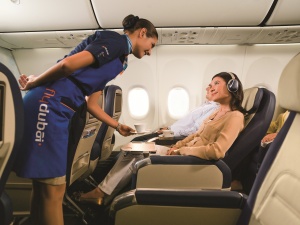ACTE: Security concerns present challenges for travel managers

With global travel facing an ever-growing number of security threats, corporate travel buyers are dealing with a growing number of traveller concerns, and struggling to adopt the tools necessary to address them.
But according to new research from the Association of Corporate Travel Executives, underwritten by American Express Global Business Travel, travel managers increasingly recognise they have a central role to play in fulfilling their company’s duty of care obligations to travelling employees.
ACTE and American Express GBT collaborated to identify research questions and key themes, seeking to take a comprehensive look at the most pressing issues facing the corporate travel industry.
The study, Take the Lead on Duty of Care for the Modern Business Traveller, conducted as the third instalment of ACTE and American Express GBT’s Meet the Modern Business Traveller research series, showed more than a third of travel managers saw a rise in enquiries relating to traveller safety.
Another 35 per cent said enquiries have remained stable - after a majority had already reported increased concern in April 2017.
ADVERTISEMENT
But it appears that a significant number of organisations do not have the systems required to quickly address these concerns.
More than a quarter of travel managers claim not to have had a detailed emergency plan in place in the six months up to June 2017.
The absence of these plans may be connected to the fact that planning meetings are uncommon in many organisations.
Some 39 per cent of travel managers report that meetings do not take place, have happened just once or occur only irregularly.
Only 14 per cent of organisations convene key stakeholders for planning meetings once or more per month.
“Travel managers cannot afford to be complacent when it comes to worst-case scenario planning,” said Greeley Koch, executive director of ACTE.
“The status quo for many organisations is to react to a crisis - but this leaves travellers in danger and ultimately does not lead to replicable procedures for the future.
“Proactive planning is an absolute necessity in an evolving global threat environment.”
Moreover, the changing security environment has yet to lead to widespread changes in corporate travel policies.
The September 2016 Modern Business Traveller survey revealed that more than half of travel managers had tightened policy in response to traveller safety concerns.
The most recent data, however, tells a different story.
Today, 58 per cent of travel managers have not made any changes to policy in the last six months as a direct response to safety concerns.
“Travel is changing at an accelerated rate, but corporate policymaking moves much slower,” said Evan Konwiser, vice president, Digital Traveller with American Express GBT.
“Organisations of all sizes must identify ways that travel policies can be nimbler and adapt to new challenges.
“Having the right partners and tools in place can be a huge advantage when new disruptions emerge.”
Despite the slow pace of corporate policy change, many travel managers have already started to act, introducing or enhancing several measures intended to alleviate traveller anxieties.
The vast majority leverage traveller locating technology, and 79 per cent provide proactive safety communication to travellers.
Additional tools used by most travel managers include safety training, emergency check-in technology, safety and security services from their travel management company and detailed emergency action plans.
Three areas emerged where a significant proportion of travel managers would like to do more.
Almost half want more support from their travel management company, 40 per cent would like to provide more safety training, and 38 per cent want to implement emergency check-in technology.
However, respondents said the cost of increased support from travel management companies and implementing emergency check-in systems was holding them back, as was their own lack of knowledge about available products and services.
Travel managers should remain in close dialogue with travel management companies to mitigate these challenges.
One area where travel managers encounter fewer barriers is proactive safety communication.
Here, 60 per cent believe they deliver adequate communication to travellers today; a further 27 per cent are working to improve in this area.
While room to improve duty of care exists, corporate travel managers are well-positioned to fill travel policy gaps, as well as prepare their organisations for future safety challenges.
“Proactivity is the key to success in duty of care, and there are some turnkey ways to make security a priority with travellers and stakeholders,” said Konwiser.
“It may be as simple as putting a quarterly meeting on the calendar for HR, IT, compliance and senior leadership to discuss the organisation’s travel policies and emergency preparedness.”

